Papua New Guinea country profile
- Published
This page is no longer being updated. It was last updated on 19 December 2023
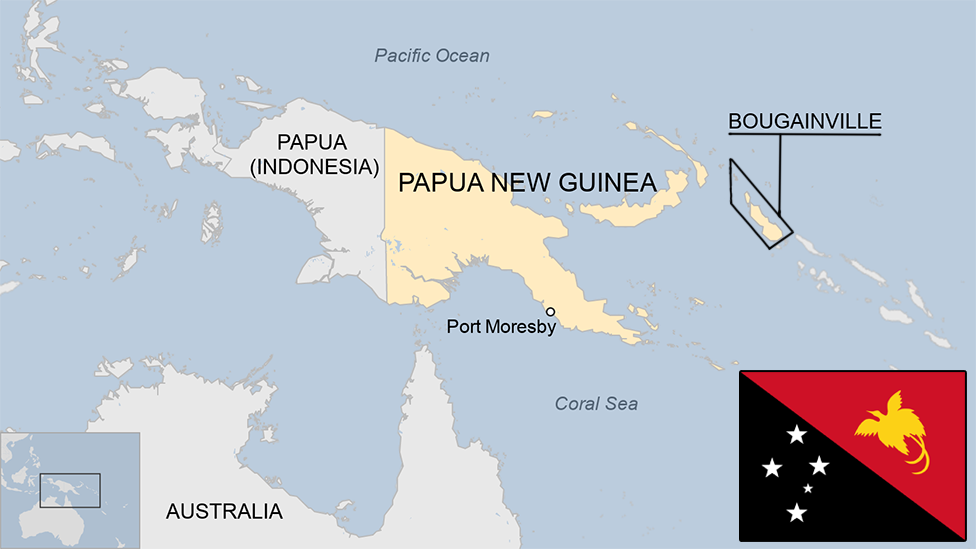
Papua New Guinea occupies the eastern part of the world's second largest island and is prey to volcanic activity, earthquakes and tidal waves.
Linguistically, it is the world's most diverse country, with more than 800 languages.
Some 80% of the population live in rural areas. Many in the isolated mountainous interior live within a non-monetarised economy dependent on subsistence agriculture.
In 2019, the inhabitants of Bougainville voted to become independent from Papua New Guinea by 2027, but the central government has said it has the final say.
Read more country profiles, external - Profiles by BBC Monitoring, external
INDEPENDENT STATE OF PAPUA NEW GUINEA: FACTS
Capital: Port Moresby
Area: 462,840 sq km
Population: 8.9 million
Languages: English, Hiri Motu, Tok Pisin, plus 851 local languages
Life expectancy: 63 years (men) 68 years (women)
LEADERS
Head of state: Charles III, represented by a Governor-General
Prime minister: James Marape
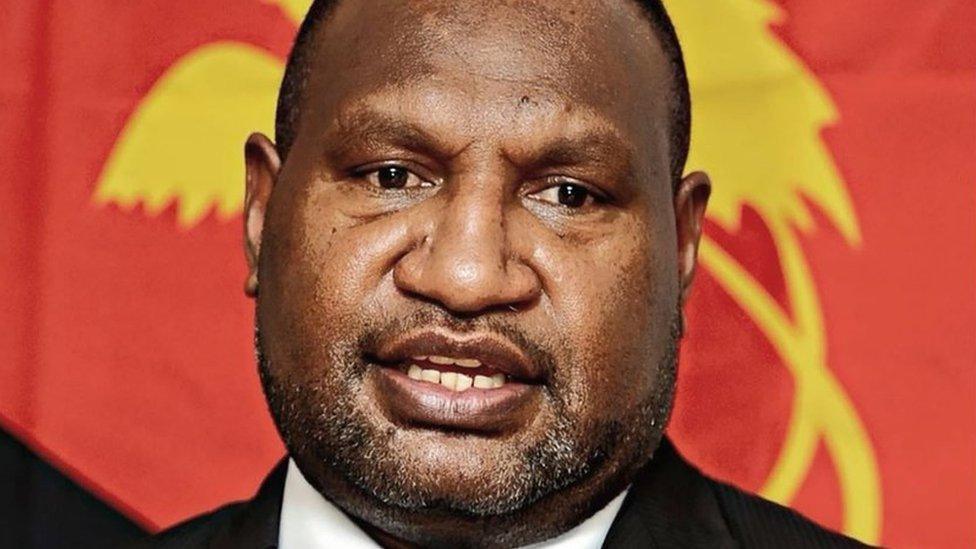
Parliament elected James Marape prime minister in May 2019, after the resignation of his predecessor Peter O'Neill.
This followed Mr Marape's own resignation as finance minister in April due to differences over a high-value gas deal.
He was re-elected as prime minister following parliamentary elections in July 2022.
MEDIA
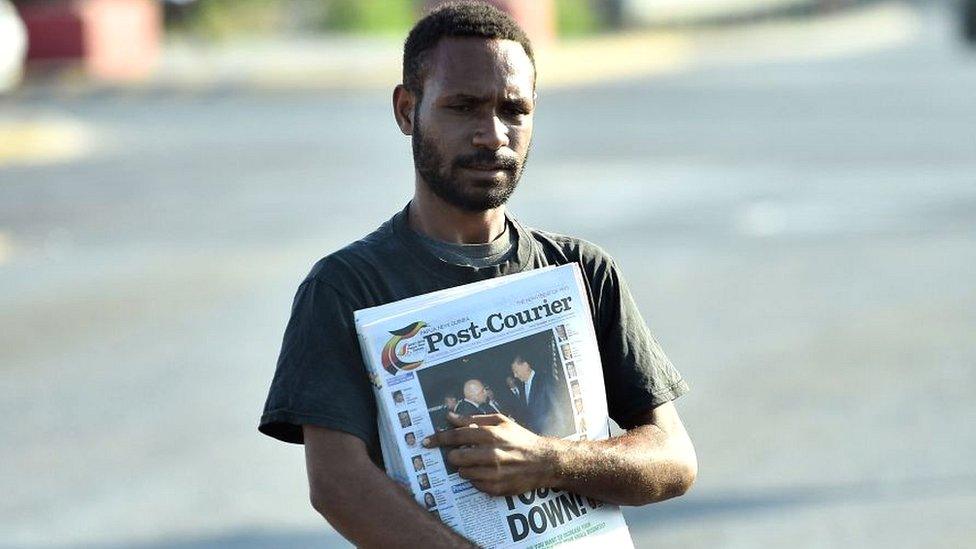
Radio is important in Papua New Guinea, which has scattered, isolated settlements and low levels of literacy.
The government operates a national network and provincial stations. The media operate in a relatively free environment, says Reporters Without Borders (RSF).
Television coverage is limited mainly to Port Moresby and the provincial capitals.
TIMELINE
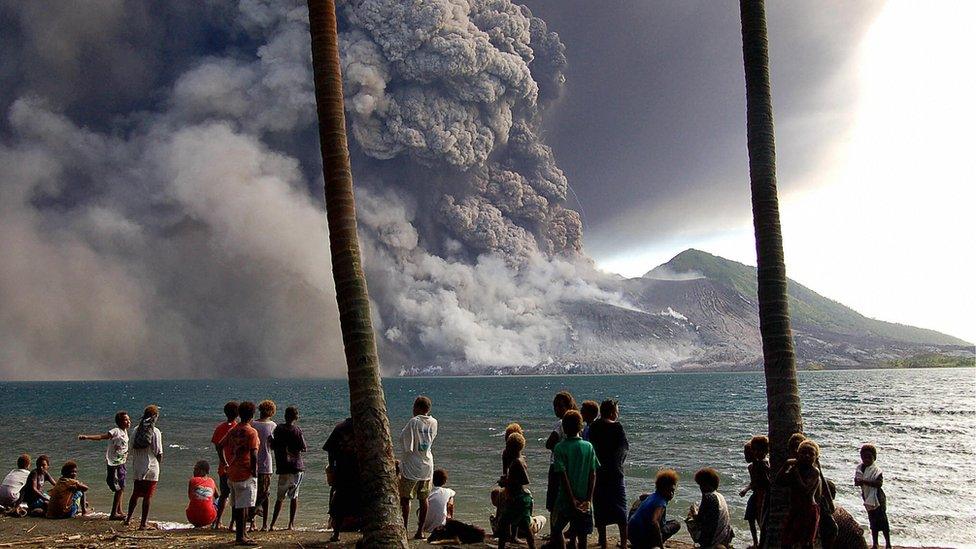
Papua New Guinea lies on the "Ring of Fire", an area prone to volcanic eruptions
Some key dates in Papua New Guinea's history:
50,000BC - First settlers are thought to arrive on New Guinea from Asia.
c. 7000BC - Agriculture independently develops in the New Guinea highlands, making it one of the few areas in the world where people independently domesticated plants
500BC - Major migration of Austronesian-speaking peoples to the coastal regions of New Guinea takes place.
1526 - Portuguese sailor Jorge de Meneses is the first European visitor. He names one of the islands "ilhas dos Papuas" or "land of fuzzy-haired people".
1546 - Spanish explorer Inigo Ortiz de Retes names the other main island New Guinea because the islanders resemble the people of Guinea in Africa.
1800 - Substantial trade networks are active all over New Guinea, with the Kula ring, a ceremonial exchange system, being particularly extensive.
1860s - American and European whalers frequent the Bismarck Archipelago.
1884 - Britain establishes a protectorate over south-east New Guinea, while Germany annexes the northern part of New Guinea.
1884 - Britain establishes a protectorate, British New Guinea (BNG), over south-east New Guinea, while Germany annexes the northern part as German New Guinea.
1895 - Gold is found on the Mambare River. A gold rush leads to hostilities between locals and miners.
1906 - Control of British New Guinea transferred to the newly independent Commonwealth of Australia and renamed the Territory of Papua.
1914 - Australian forces occupy German New Guinea during the World War One.
1921 - The League of Nations grants Australia a mandate to run German New Guinea, which is governed separately from the Territory of Papua.
1920s - A major gold find along the Bulolo river prompts another gold rush.
1942-45 - New Guinea campaign. Japanese forces occupy parts of both territories, pushing east and south. Allied victories in the battles of Milne Bay, along the Kokoda Trail and around Buna and Gona becomes a key turning point of the Pacific War, forcing the Japanese to retreat. Some 216,000 Japanese, Australian, and US servicemen die during the fighting.
1949 - Australia establishes a joint administration over both territories called the Territory of Papua and New Guinea.
1961 - First elections involving indigenous population.
1963 - UN transfers control of West New Guinea (now Papua) to Indonesia.
1964 - A 64-member House of Assembly replaces Legislative Council and for the first time indigenous representatives are elected to the majority of seats in the legislature.
1971 - Country is renamed Papua New Guinea (PNG).
1973 - Indonesia and PNG agree on the position of their border.
1975 - Papua New Guinea attains full independence from Australia.
1975-76 - Separatist revolt on Bougainville island. The constitution is altered so Bougainville and other districts to have quasi-federal status as provinces.
1977 - First parliamentary elections since independence.
1988-98 - Separatist rebels on Bougainville begin prolonged armed struggle against the government. The recently-formed Bougainville Revolutionary Army (BRA), anxious about environmental destruction and unhappy that profits are leaving the island, forces the closure of the Australian-owned Panguna copper mine. About 20,000 people are killed in the fighting.
1994 - PM Sir Julius Chan signs agreement with several Bougainville secessionist leaders which provides a transitional administration in Bougainville. Bougainville Revolutionary Army leaders are not signatories; they continue to fight for full independence.
1997 - Government hires mercenaries from Sandline International to support government troops in Bougainville, sparking an army mutiny and civil unrest.
1997 - Burnham Truce marks the end of the decade-old armed struggle by Bougainville separatists. Countries in the region establish the Truce Monitoring Group to oversee compliance.
1998 - Permanent ceasefire signed in Bougainville by government representatives and secessionist leaders. Australian-led Peace Monitoring Group takes over from Truce Monitoring Group.
2001 - Bougainville Peace Agreement, guaranteeing a referendum in 10 to 15 years on Bougainville's future political status, is signed in Arawa.
2005 - Bougainville elects its first autonomous government. Former separatist rebel Joseph Kabui becomes president.
2019 - Bougainville overwhelmingly votes for independence in a referendum, to take place by 2027. Talks are continuing between the Bougainville and national governments.
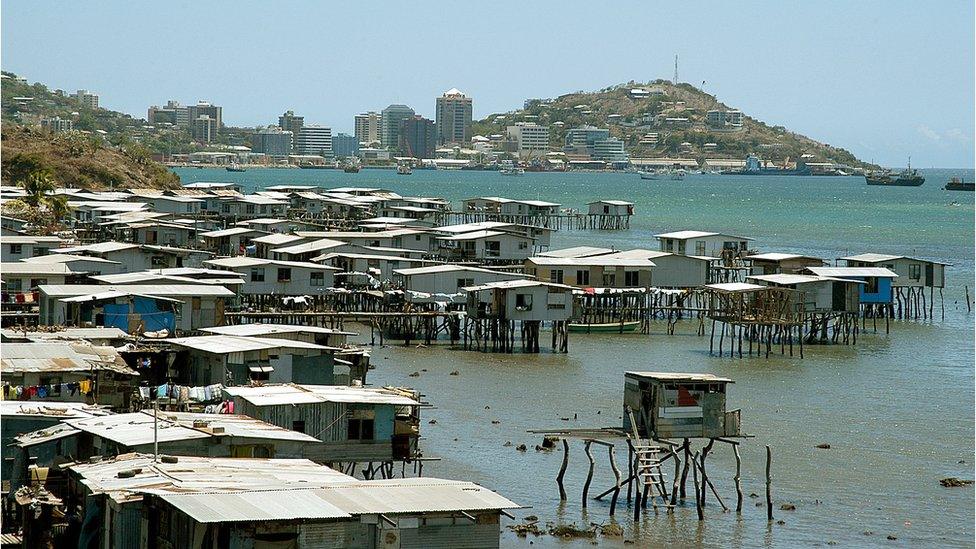
Port Moresby has grown into a modern town
Related topics
- Published14 April 2023
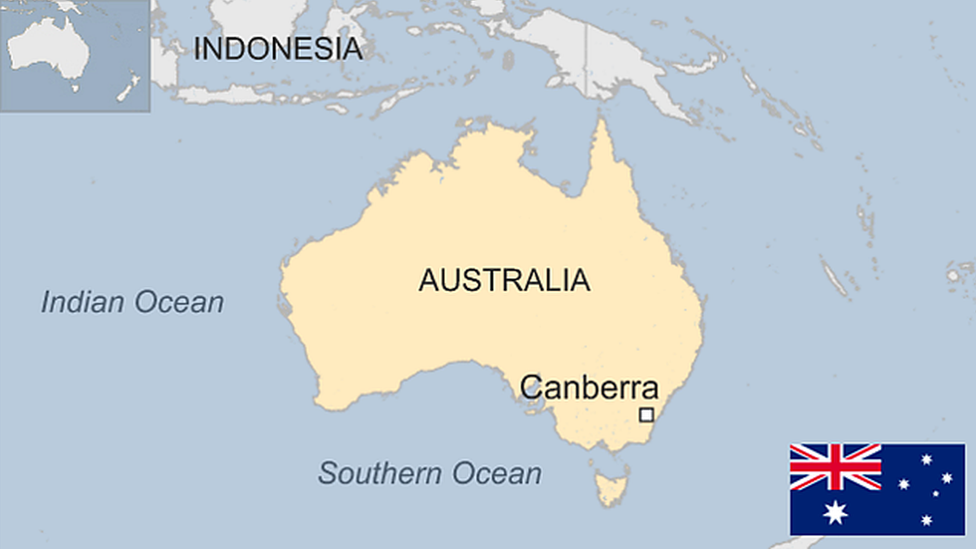
- Published5 June 2023
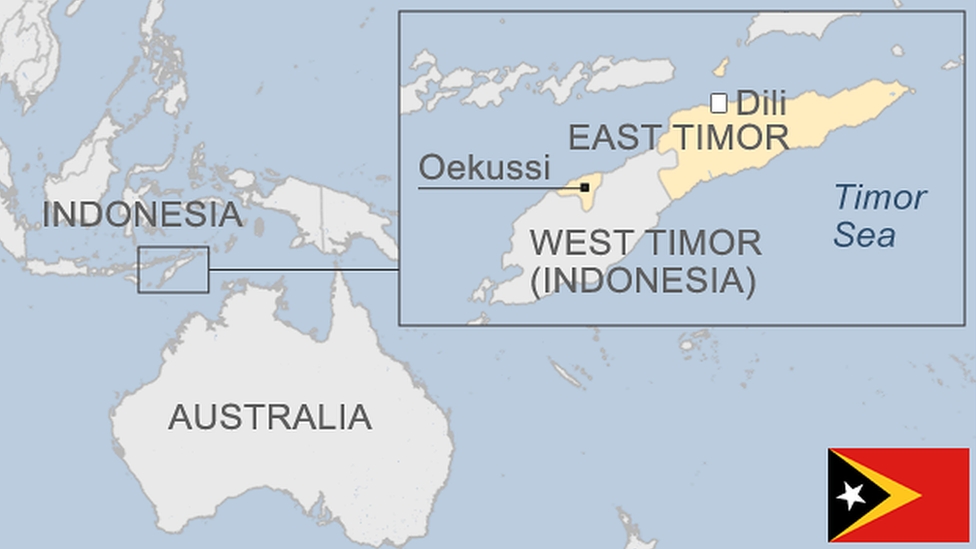
- Published25 October 2024
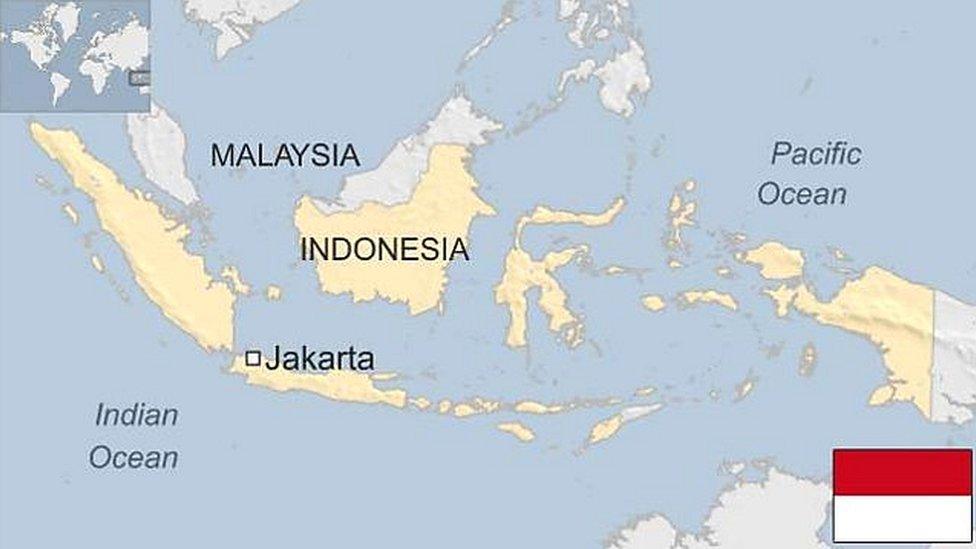
- Published21 May 2024
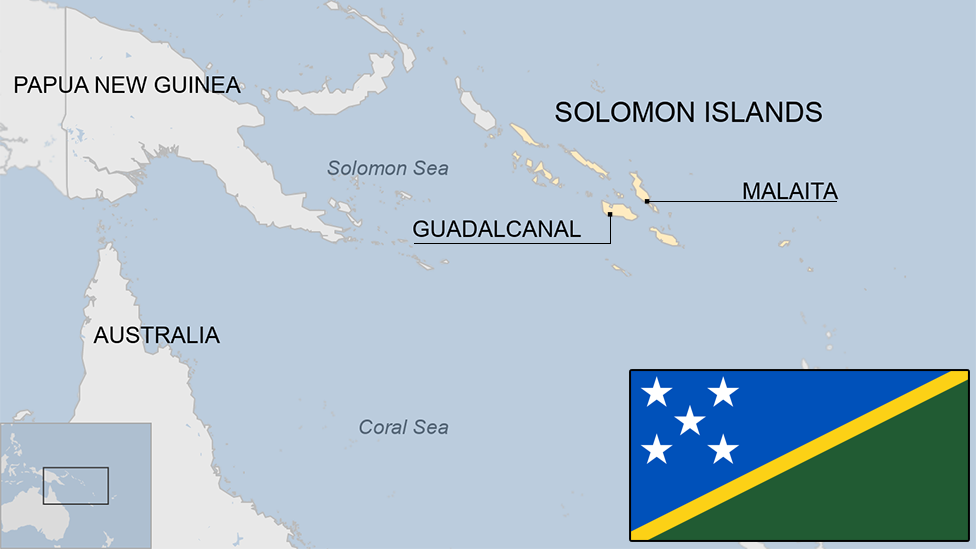
- Published27 October 2023
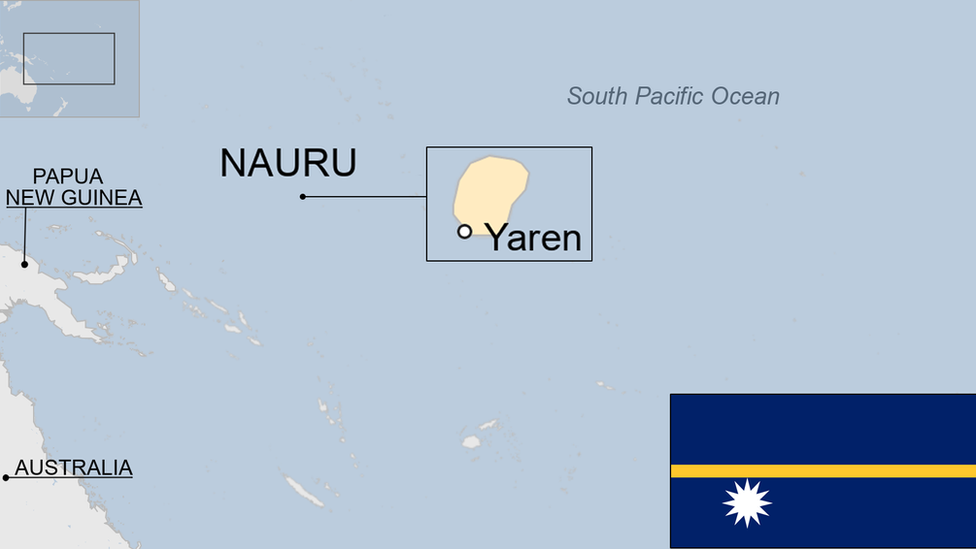
- Published27 October 2023
